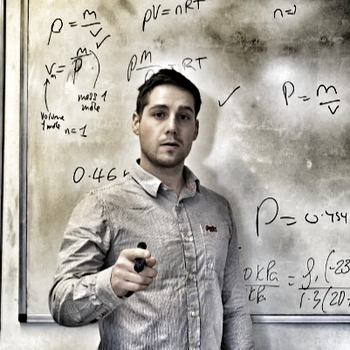Is fission a chain reaction?
1 Answer
It can be under the right circumstances.
During fission a fissile nucleus breaks apart into several fragments. A fissile nucleus is an extremely large and therefore unstable nucleus. Uranium-235 is an example of a fissile nucleus. Spontaneous fission is rare, usually it has to be induced a neutron being absorbed by the fissile nucleus.
During fission there are two large product nuclei and two or three neutrons produced. The neutrons can induce further fissions. If they do that is a chain reaction.
Nuclear fission reactors
Enriched uranium (i.e. the proportion of U-235 is higher than in naturally occurring uranium) is used. Neutrons from fissions are used to induce further fission reactions, but before they can be used they need to be slowed down. A moderator (e.g. carbon) is used to do that. The rate of reaction is controlled with control rods (e.g. boron) which absorbs neutrons. In these circumstances the reaction is not a chain reaction in the sense of an exponential increase of the number of reactions taking place per unit time.
Atomic bombs
Uranium that is enriched to "weapons grade" is used (much higher proportion of U-235 than for a nuclear reactor). During the detonation of an atomic bomb the uranium core is imploded so that the density increases to something called critical density. When that happens a fission reaction is induced in the core which triggers a chain reaction. This reaction is not controlled, therefore the number of reactions per unit time increases exponentially - hence the explosion.

